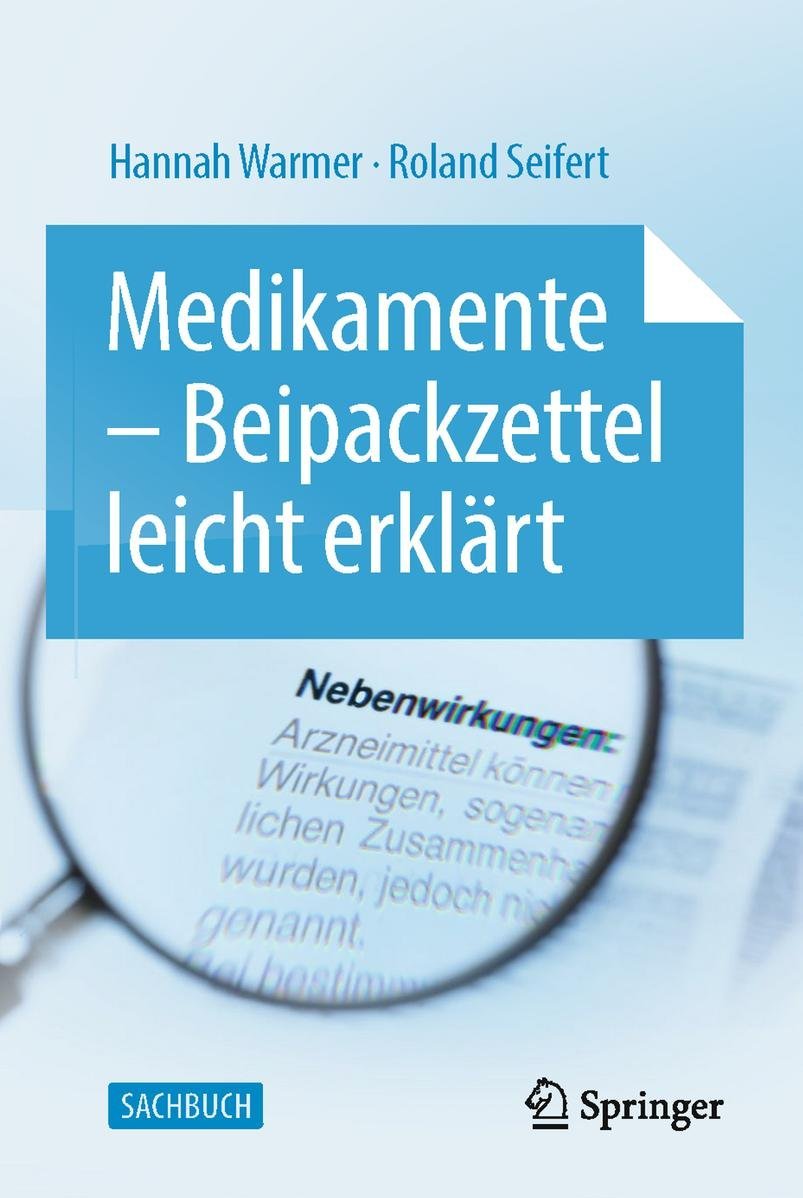MHH student Hannah Warmer has written a reference book about the effects of medication.

In her book, student Hannah Warmer provides helpful tips. Copyright: Bettina Dunker/MHH

We've all been there: you get a prescription for a medicine at the physician's surgery, fill the prescription at the pharmacy and then try to find the most important information on the long, small and often incomprehensible package leaflet at home. The leaflet also contains many warnings and is therefore more confusing than informative. What information is really important when I take a medicine? What side effects and interactions do I need to be aware of if I am also taking other medicines? Hannah Warmer, a student at Hannover Medical School (MHH), addresses these questions in her first book. It is called ‘Medikamente - Beipackzettel leicht erklärt’ and has been published by Springer-Verlag. Warmer spent two years analysing the package leaflets of 50 frequently prescribed medicines in Germany. In short, easy-to-understand profiles, she presents them on 254 pages, including, for example, the antihypertensive Ramipril, the painkiller Ibuprofen, the anticoagulant Apixaban and the cortisone preparation Prednisolone.
A reference work for older people too
‘The aim of this book is to allay fears and pass on the most important information in as comprehensible a form as possible,’ explains Warmer. ‘It's always a balancing act: what is really important to know and what is actually just scary and should be disregarded due to the low frequency of cases?’ The medical student was inspired by her grandmother, who was often overwhelmed by the package inserts and wished she could look up the information that was most important to her: Which active ingredients are included, which complaints are alleviated, which side effects and interactions are important to be aware of? ‘That's my aim with this book: to offer a reference work for older people too. They can quickly read up on what they didn't ask or understand when they visited their physician or pharmacy,’ explains Hannah Warmer. It is important for her to emphasise that she does not want to replace advice from the pharmacy or the physician treating the patient. ‘These are and remain the most important contacts when it comes to counselling and treating illnesses and complaints.’
Refrain from using ibuprofen to get fit for exams
In addition to the possible interactions with other medications, Warmer also provides helpful tips in her book. For example, she advises against taking ibuprofen for longer than necessary, as it inhibits the cyclooxygenases (COX) COX-1 and COX-2 to relieve pain and inflammation, thereby stopping the formation of prostaglandins. However, these messenger substances also break down the protective gastric mucosa, which is why prolonged use of ibuprofen can attack the mucous layer and even cause stomach ulcers. ‘Younger people should therefore definitely refrain from using ibuprofen to get fit for exams or sport. For people with rheumatic diseases who are also taking prednisolone, an acid blocker may also be useful,’ advises the student, who not only passes on knowledge from her medical studies in her book, but also rediscovered her writing talent. The non-fiction book will be the centrepiece of her doctoral thesis on the subject of ‘Communicating pharmacological content to laypeople’.
She was sponsored and supported by Prof Dr Roland Seifert, Director of the MHH Institute of Pharmacology. He repeatedly offers MHH students the opportunity to realise rather unusual projects and doctoral theses. ‘Through my extensive range of offers for theoretical doctoral theses, I try to give as many students as possible the chance to realise their talents, which are otherwise not called upon in medical and dental studies.’ Professor Seifert is co-author of the book.
Text: Bettina Dunker